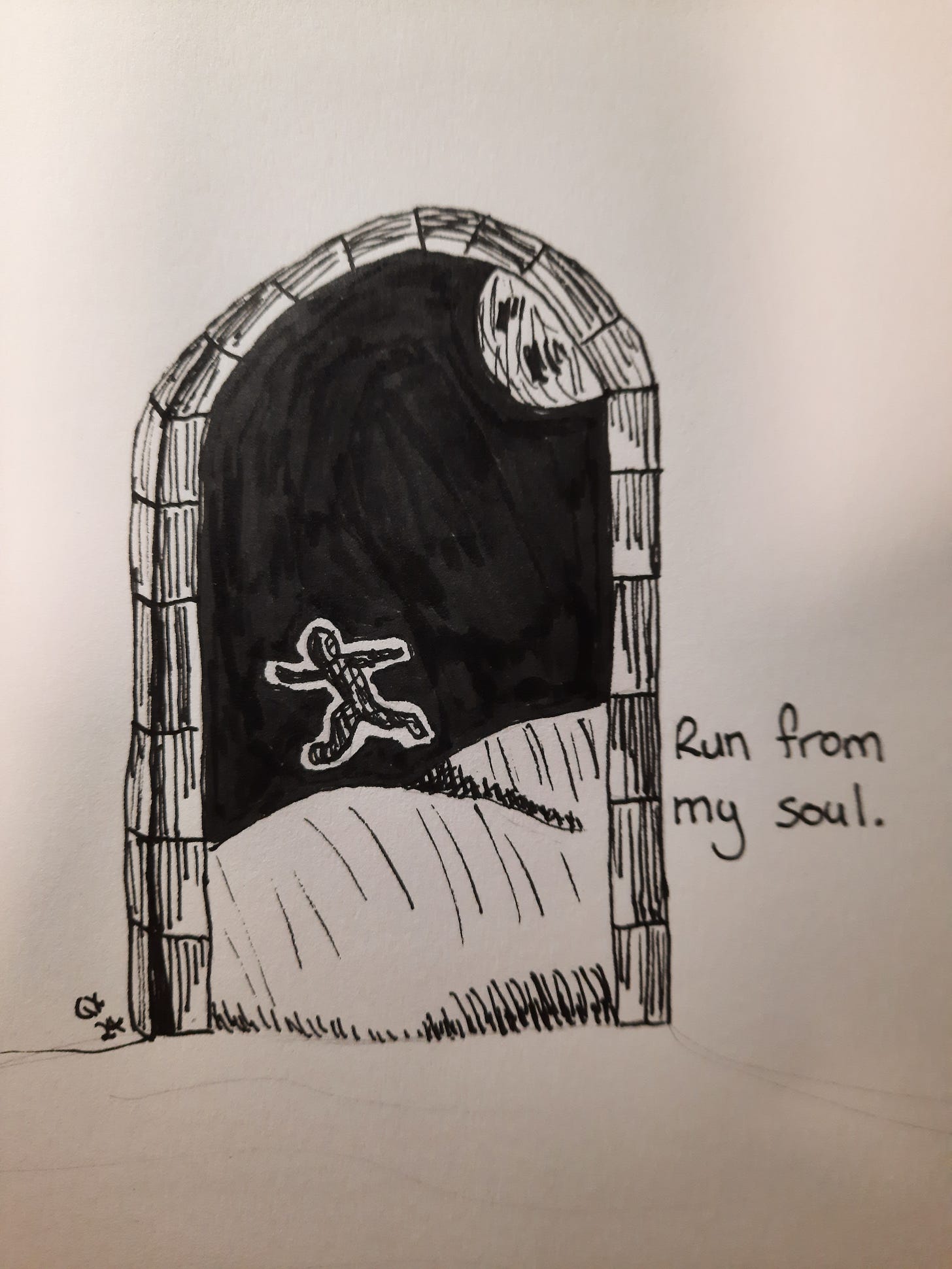I have, at times, lamented the rise of LLM created music (AKA, AI music) on platforms such as Bandcamp. In the post “AI and the Means of Production”, I took a Marxist approach to the problematic nature of AI in the world of art. Since then, I stumbled upon the blog of Jack Righteous. Jack raises some interesting arguments in favour of AI and music creation and has a blog devoted to AI music.
As a matter of disclosure, as a music fan, I am NOT a musician. I cannot read music and the kazoo remains a skill beyond my abilities. But as a fan, I have an agenda in writing this. I am, right up front, against AI music and will argue that in this post. Jack Righteous also has an agenda. He has music on Spotify, Soundcloud and other places. He is at least attempting to make some money from AI music. Therefore, Jack has a very real agenda as well. Let’s not delude ourselves: neither Jack nor I are impartial on this issue.
Jack Righteous has started a petition at Change.org calling for a support for “innovation and accessibility” in music production. I would say the dude is serious about this and believes in it enough to take action. And that is to be applauded. All respect to Jack for doing something about it when so many would prefer to sit about and whine like toddlers.
In his article “Defence AI Music Creation”, Jack makes some solid arguments why using AI for music creation is not only acceptable, but a good thing. However, I believe some of his arguments are flawed. First of, all he claims AI is merely the next step in a “legacy of automation in music”. While he is right that such a legacy exists in Digital Audio Workstations (DAW) and “MIDI tech”, these technologies only work with what the musician inputs. They have little to do with the actual generation of music. A DAW can be used on music you have written or a tune generated by Soundverse. By claiming this so-called “legacy”, I feel Jack is concealing a fundamental difference between AI as it is now and what DAW’s and MIDI truly are. The issue is not how you process your music. The issue is with how you create it in the first place. I believe Jack’s argument fails to address that issue.
Jack Righteous also makes mention of the 2010’s and the rise of AI-generated ideas. Here, I think, he is on more solid ground. Personally, I would have an issue with using AI to generate my own ideas, but I would not be judgy and vituperative if a musician chose to use AI in this manner. I feel the argument put forward still suffers from a disconnect between part of the creative process and the initial creation of the art itself. It is one thing to have an AI blast out a few ideas for a song or album, but an entirely different thing to have that AI create the song for you. I believe the legacy of automation in music is a mirage and does not address the central issue that is in focus in the 2020’s. Using AI to actually create music, rather than generate ideas, has no legacy. AI used to create music is vastly different to its use in the post-production of music that a song writer has already written. I hold that the arguments above fail to address this difference.
Jack Righteous goes on to make a very interesting point. He makes the claim AI serves to democratise music production. Jack has framed this argument within the music industry’s deep desire to retain control over music production, and by implication, to maintain its profit margin. That is, with AI, anyone can create music, whether they can play an instrument or read music or not. Let me take a double pronged approach this.
Firstly, the meaning of “democratise” in the Merriam-Webster dictionary means “to favour equality: not snobbish”, or “relating to, appealing to, or available to the broad masses of the people”. There are other meanings, more political in nature, but I am certain they are not the relevant definitions to this argument. Yet, skills are not something we can democratise. Indulge me a little thought experiment. Bob is a qualified electrician and, under national regulations in many countries, he is allowed to carry out electrical work in residential properties. This is for good reasons. He has the skill set that enables him to carry out such work. In stark and mind-numbing contrast, I am not an electrician and I do not have the skill set to do anything remotely electrical. While electrical work is a safety issue and music is not, the analogy serves a purpose. Skill and knowledge are not able to be “democratised” in the sense meant in Jack’s argument.
Allow me to provide a further illustration through visual art. Below is an image drawn by me, using pencil and Indian ink. Speaking absolutely honestly, this picture is utter crap in quality. However, I used my skills, as pathetic and undeveloped as they are, to create this. This image is mine.
Below is another image for which I used Nightcafe. I input some words into the platform and this was one of four images the AI created for me. I did not create it. In fact, my relationship to this image is no different to if I had asked a human artist to make an image for me. In commissioning a real artist, a client gives them some ideas about what is wanted (in words) or needed in the artwork to be designed. In this image, I was not the artist and to claim that title for myself is to demean and devalue actual artists and their skills.
Secondly, we would hardly wish to “democratise” the work of pilots or doctors. Some people have skills in certain fields and some do not. To attempt to make such skills available to everyone through the mediation of a rudimentary technological parlour trick is hardly a wise choice. We might, one day in the distant future, ask Data from Star Trek: The Next Generation to perform open heart surgery on us, but we would be idiots to use “AI” now for the same task. Skill is not a democratisable asset. For those of us who do not have the skills of Jimmy Hendrix, the onus is on us to gain them. If I wish to claim the title of “musician”, the obligation lies with me to acquire such skills.
Jack finishes off with a wonderful sentiment and this is perhaps my favourite quote from his blog.
Let’s embrace this new era of music together, where creativity knows no bounds and everyone has the opportunity to make their voice heard.
The quote implies people need to have access to music creation for their voices to be heard. This is false. For those of us who cannot play musical instruments, there is a plethora of other avenues and media through which to make our voices heard. To reduce this point to an either-or proposition is to simplify it ad absurdum. I totally agree people should be heard. I absolutely agree with Jack Righteous on this point. I disagree, however, that AI-generated music is a vehicle worthy of that lofty goal.
To wind up, I have an agenda in this and I am not impartial. I consider Jack Righteous to be similar to me in this point. Additionally, I am not an musician and I have little understanding of the music industry and its technology. These facts should be kept in mind when considering my arguments in this post. Despite that, I hope my views and response to Jack Righteous add something to the valuable debate about AI and its place in the creation of art and human expression.
Key Articles to Read
“Monetise AI Music: Discover Bandcamp's AI-Friendly Platform”







Jack Righteous wrote a response to my response. He had a fairly watered down understanding of my opposition, I felt, but he made a some good points. If you're keen to, I recommend checking out his reply and his other posts on AI music.
https://jackrighteous.com/blogs/mont-real/ai-and-music-a-response-to-jack-righteous-by-tripped-gibbon